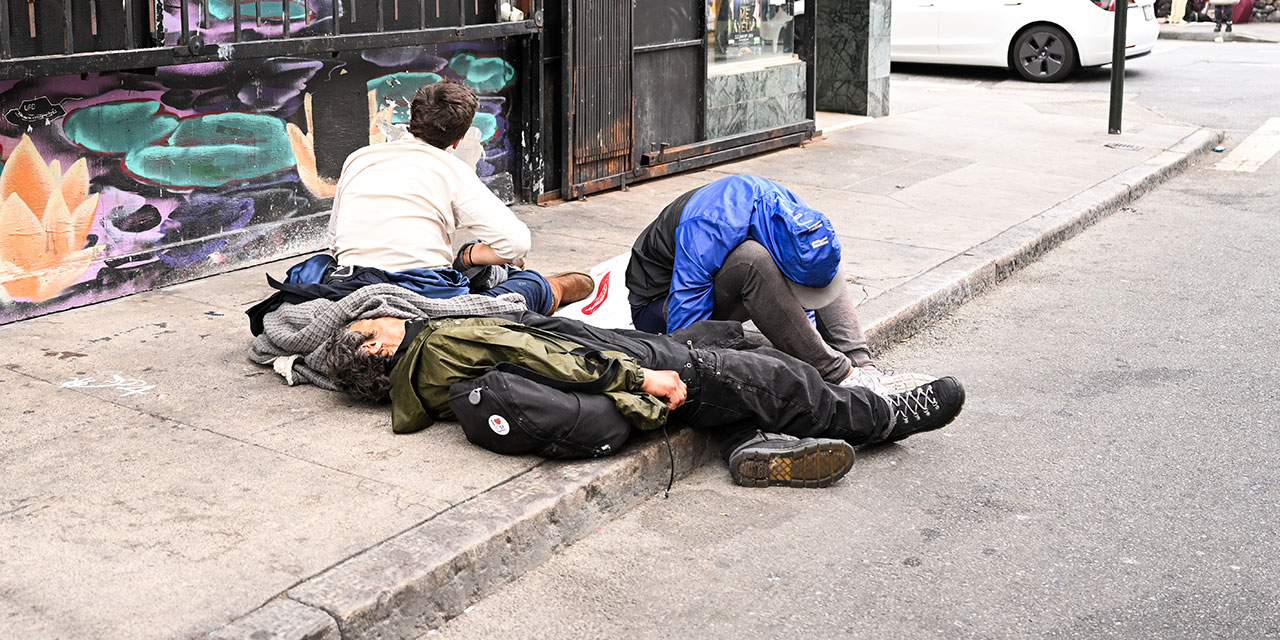On the day after police discovered the lifeless body of four-year-old Jahmeik Modlin on the floor of an apartment in Harlem, every pew in St. Patrick’s Cathedral was filled for a special Mass. Finding no place in the pews, I stood in the aisle in front of a side altar dedicated to Elizabeth Ann Seton, a fellow New Yorker and the first person born on these shores to be named a canonized saint. There stands her likeness in white marble, with hand outstretched toward a little child, representing one of the thousands of poor children to whose care and education she dedicated her life.
Jahmeik weighed 19 pounds at his death. He had three siblings living with him in a feces-strewn apartment. All required hospitalization due to malnutrition. Only after Jahmeik’s death did the city’s Administration for Children’s Services remove his siblings from the care of his parents, both of whom now face criminal prosecution. ACS had at least one prior contact with the Modlin family, and reportedly deemed a previous complaint about Jahmeik’s malnutrition “unsubstantiated,” even though he was 22 pounds at his last known medical examination in 2022.
Finally, a reason to check your email.
Sign up for our free newsletter today.
Once a component of the city’s sprawling social-welfare agency, ACS was established as an independent office in 1996, in response to the appalling death of six-year-old Elisa Izquierdo. In the nearly 30 years since, every mayor has been confronted with the horrible deaths of children who previously had contact with ACS.
While ACS is not entirely responsible for these deaths, it continues to fail at an alarming rate despite attempted reforms. The New York Times reported that three children known to the agency or to police had died in the summer of 2021 alone. Jahmeik is the sixth child to have died from abuse in the city in the last three months, each of whom, per the New York Post, was known to ACS.
In the week since Jahmeik’s death, public officials have been disturbingly quiet. Mayor Eric Adams issued a single statement; Governor Kathy Hochul has said nothing. Incredibly, ACS commissioner Jess Dannhauser hasn’t said a word, either. No one has suggested that reform is necessary. Al Sharpton, who organized a vigil in Harlem for Jahmeik, seems to be the only politically prominent person to show a semblance of care.
The vacuum created by the city’s poor leadership has opened the door for “advocates” with ideological grievances against the child welfare system. Their proposed reforms may make it more likely that other children will suffer Jahmeik’s fate. The Adams administration has largely succumbed to this radical campaign. Gotham officials have characterized the child welfare system as racially biased. In a coauthored December 2022 Daily News piece touting the agency’s new initiatives, ACS commissioner Dannhauser used the word “equity” four times, arguing that the agency must not engage in a “false choice” between “equity” and “safety.” In May 2023, the New York Civil Liberties Union published an article accusing ACS of perpetuating a racist system that disparately targets “Black and Latino families.” The NYCLU pressured the agency to give Miranda-style warnings to the adult subjects of abuse complaints informing them that they are not obligated to cooperate with ACS. Earlier this year, ACS adopted a policy requiring case workers to read versions of these “rights” to adults under investigation.
A few days after Jahmeik’s death, Adams and Hochul laughed it up on the dais of the dinner named in honor of Al Smith, a man whose career was defined by his response to the deaths of 146 workers in the Triangle Shirtwaist fire. Then-Assemblyman Smith, from the Lower East Side, forced the legislature to address the outrageous conditions that caused so many workers, trapped and suffocating, to die inside the factory. Smith was a man of the city’s streets who heard the cry of his constituents, many suffering in destitution. He led and acted for the common good.
Smith lived only a short distance from the site on State Street, at the curve of the Battery, that Elizabeth Ann Seton once called home. Before the altar dedicated to her memory, I asked for her intercession: to inspire our leaders to do right by the memory of Jahmeik Modlin, and by the souls of all the city’s children who suffer abuse and neglect.
Photo: kieferpix / iStock / Getty Images Plus




